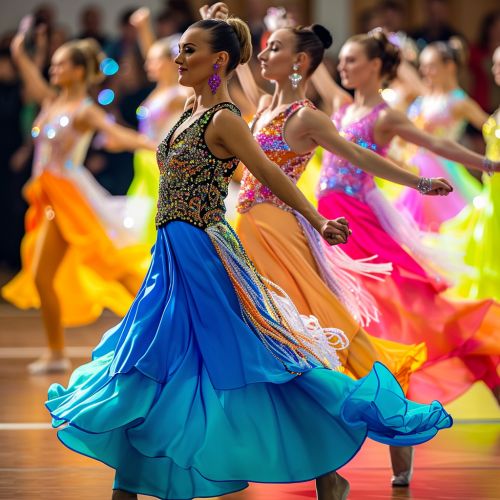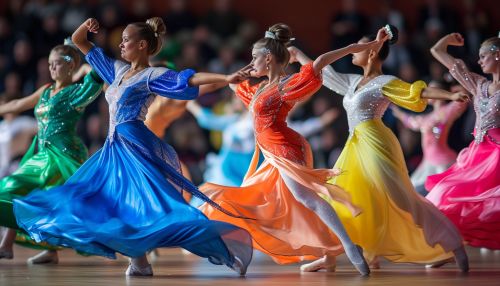International DanceSport Federation
Overview
The International DanceSport Federation (IDSF) is the international governing body for all DanceSport competitions and activities. It is recognized by the International Olympic Committee (IOC) as the sole representative body for the sport of DanceSport. The IDSF oversees and regulates all aspects of competitive DanceSport, including the rules and regulations, judging criteria, and the organization of international competitions.
History
The International DanceSport Federation was founded in 1957 as the International Council of Amateur Dancers (ICAD). It was established with the aim of promoting DanceSport and fostering international cooperation among various national DanceSport organizations. In 1990, the ICAD was officially recognized by the IOC as the international federation for DanceSport. In 1997, the ICAD changed its name to the International DanceSport Federation to better reflect its role as the global governing body for DanceSport.
Structure and Governance
The IDSF is governed by a General Assembly, which is composed of representatives from each of its member federations. The General Assembly elects a Presidium, which includes the President, Vice Presidents, and Secretary General. The Presidium is responsible for the day-to-day operations of the IDSF and for implementing the decisions of the General Assembly. The IDSF also has a number of technical committees, which are responsible for developing and maintaining the rules and regulations for DanceSport competitions.
Member Federations
The IDSF has over 90 member federations, representing countries from all over the world. Each member federation is responsible for the promotion and development of DanceSport in its respective country. They also organize national competitions and select athletes to represent their country in international competitions.
Competitions
The IDSF sanctions a wide range of DanceSport competitions, including World Championships, Continental Championships, and World Cup events. These competitions cover various DanceSport disciplines, such as Latin American, Standard, and Ten Dance. The IDSF also oversees the DanceSport program at the World Games, which is a multi-sport event for non-Olympic sports.
DanceSport Disciplines
DanceSport encompasses a wide range of dance styles, each with its own unique set of rules and judging criteria. The main disciplines recognized by the IDSF are Latin American, Standard, and Ten Dance.
Latin American includes dances such as the Samba, Cha-Cha-Cha, Rumba, Paso Doble, and Jive. Standard includes dances such as the Waltz, Tango, Viennese Waltz, Slow Foxtrot, and Quickstep. Ten Dance is a combination of the five Latin American dances and the five Standard dances.
Judging Criteria
In DanceSport competitions, couples are judged on a variety of criteria, including technique, musicality, timing, and presentation. The IDSF has developed a detailed set of rules and regulations for judging DanceSport competitions, which is used by all member federations.
Development and Promotion of DanceSport
One of the main objectives of the IDSF is to promote DanceSport and increase its popularity worldwide. The IDSF works closely with its member federations to develop DanceSport at the grassroots level and to increase participation in DanceSport competitions. The IDSF also works to raise the profile of DanceSport through its involvement in international multi-sport events, such as the World Games.
See Also


